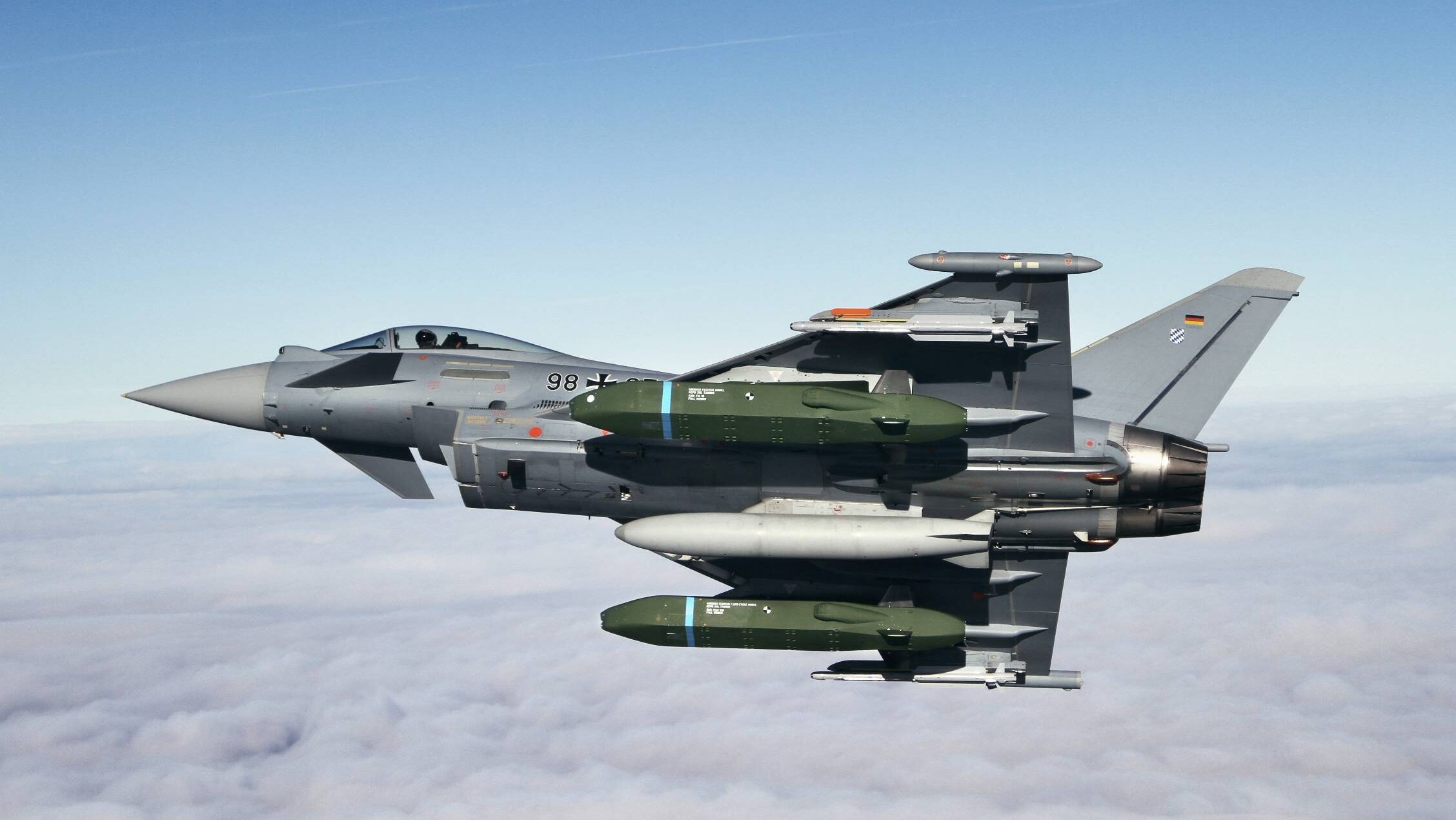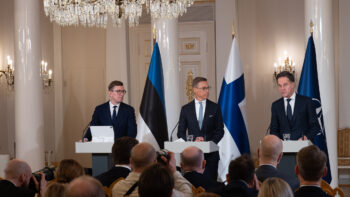
A German Eurofighter Typhoon fighter jet armed with Taurus long range cruise missiles takes flight (Taurus)
BEIRUT — In what would be a key reversal, Germany is apparently coming around to the potential sale of Eurofighter Typhoons to Turkey, according to a senior Turkish official.
“We will acquire 40 Eurofighter Typhoon jets,” Turkish Defense Minister Yasar Guler said during a televised interview Wednesday. “Germany had been reluctant for a long time, but with the constructive contributions of our NATO allies Italy, the UK, and Spain, they finally gave a positive response.”
Those comments came hours before Reuters reported that an unnamed Turkish official claimed the German government had directed its sales authority to work on the potential sale, though he said that didn’t mean the process is complete.
Germany does not appear to have put out a statement about any change in Berlin’s stance, and the German Ministry of Defense did not immediately respond to a request for comment from Breaking Defense.
The Eurofighter Typhoon is a European fourth-generation fighter jet consortium comprised of Germany, the United Kingdom, Italy and Spain, and is built by Airbus, BAE Systems and Leonardo.
If any of the four partnering countries vetoes an export order, the deal is halted, as seen when Germany put a block on the sale of Eurofighter Typhoons to the Kingdom of Saudi Arabia.
Gular announced in November last year that Turkey was in talks to buy 40 Eurofighter Typhoons. At the time, analysts told Breaking Defense that the pronouncement could’ve been something of a gambit, aimed in part at giving Ankara bargaining power in its years-long quest for new American F-16s. In January, the Biden administration gave the greenlight for a potential deal for Ankara to buy 40 new F-16s for $23 billion.
Turkey is currently facing a fighter gap as it waits for its planned 5th generation KAAN fighter, developed by Turkish aerospace firm Tusas, to come online in 2030. As the Turkish air force already flies F-16s, it has sought new versions of the plane from the US.
“Turkey’s approach to securing the Eurofighter deal involves leveraging diplomatic relations, with the UK and Spain playing pivotal roles in persuading Germany not to veto the agreement,” Ali Bakir, nonresident senior fellow at the Atlantic Council’s Scowcroft Middle East Security Initiative, told Breaking Defense when the potential deal was first announced. “However, Germany’s history of imposing restrictions and sanctions on defense deals with Turkey, often under dubious or politically motivated pretexts, remains possible.”
Can Kasapoglu, director of defense research at the Istanbul-based Edam think tank, emphasized in November 2023 that a successful Eurofighter deal wouldn’t necessarily preclude an additional F-16 deal.
“Turkish air power has a stopgap trouble up until the indigenous KAAN makes it,” Kasapoglu said. “The [Eurofighter] can offer some relief, depending on the tranche.”
What Pete Hegseth’s hearing tells us about Trump’s plans for the Pentagon
While the hearing didn’t dive into foreign policy, Hegseth offered up a peak into weapon programs that may get more attention.


























